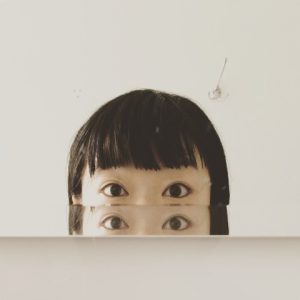Dear Aki,
The visual tickles! But let me tell you, most of those who saw our work simply dismiss it as another sweet-and-sour whatever on the menu. But I want the story to be told, pass on, from hand to hand, from postman to postwoman. So I’m putting it down here as a postscript.
xx
p.s. Hair. Cut!
One afternoon in Volkspark am Weinberg.
I was strolling in the park and a woman walking in my direction kept looking at me. Although this isn’t unusual, I normally don’t want to interact with the observer. This time, somehow, words came out of my mouth.
Do we know each other?
No. I like your short hair. That’s why I’ve been looking.
We both burst out laughing. I happily showed her how the stylist did my cut. Satisfied, with a broad friendly smile, she said as we were about to part, “Haha, how the world has changed! Asians used to steal ideas from us. Now we have to copy from Asia!”
p.p.s.
Her casual remark echoed a resounding “original sin” in my ear – the crime of copyright infringement – the white-god forbidden bite into the fruit of knowledge. Hark, knowledge! What I learned from the conversation was the knowledge gap between me and the neanderthal at the scene. The gap between us isn’t a common language, but a common sense.
p.p.p.s.
“Instrumentalise critique to shape a more just world”. The zine’s call for contribution features a yellow shirt with a big Decolonise printed on it.
But as we look across the post-WWII decolonised states, for instance, the former British colonies in Asia, it’s hardly convincing that decolonisation has served that purpose. What went wrong when righting the wrong?
The colonisers had long justified their presence as civilising. Whereas civilisation represents deliverance from ignorance and departure from barbarism, the elements of reason and (scientific) rationality are the crux of the whole project. By this standard, the civilisation project is still going on.
In this age of information, dare-to-know is out of the question. It’s more about the courage to take ownership of what we think we believe, instead of outsourcing our brains to genealogy or traditional beliefs. When we use an instrument to craft our milieu, we have to be careful that we carve with a tool and not with its toolbox.

